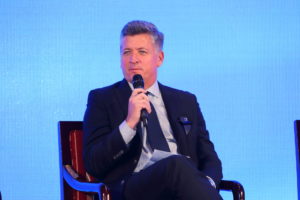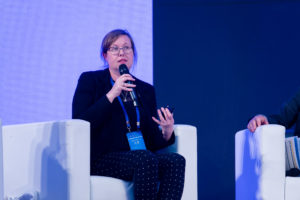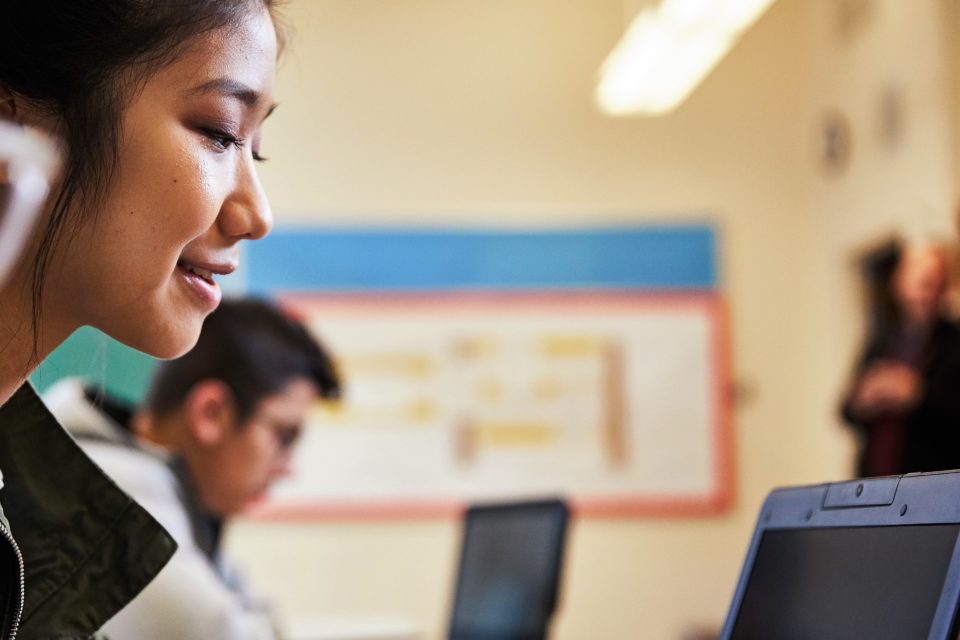By Alexa Joyce, Director of Education Leadership at Microsoft
School leaders across Asia and around the world are aware that artificial intelligence has the potential to transform education. Whether it’s by supporting teachers and learners in the classroom with more personalized experiences, or in helping school systems get real-time perspectives into what’s happening on the ground, data and analytics tools empowered by AI have a multitude of potential applications for education.
AI has the ability to improve the quality of education, through getting actionable insight on how to personalize and improve learning experiences for students, as well as identify areas where students, teachers and schools need more support. Already today, tools like the Immersive Reader that use AI and machine learning, can help students with dyslexia achieve more at school.
The United Nations Sustainable Development Goal 4 (SDG4), on quality education, aims to harness the use of technology to improve student learning opportunities around the world. It also represents a vital global effort that is consistent in spirit and principle to our company’s mission.
We have been committed to sustainable development and addressing SDG4 as one of our priority areas to help address the digital divide through support for teachers, and we want to ensure we widen our support in achieving SDG4 through thoughtful use of AI in education policy and strategy.

Microsoft is proud to be working together with UNESCO to tackle this challenge, and support the development of ethical, impactful AI in education policy and strategy.
At the recent International Conference on Artificial Intelligence and Education ‘Planning Education in the AI Era: Lead the Leap’, hosted by UNESCO and the Ministry of Education of the People’s Republic of China, Microsoft was proud to play a part.
Larry Nelson, GM Education for Asia, who took part in a plenary panel on partnerships for AI in education, said:
“Governments around Asia and worldwide have strong ambitions for using AI in education, whether for adaptive and personalized learning, or gaining insight and predictions into data generated by the education system. Our approach to AI – based on the six core principles of Fairness, Reliability & Safety, Privacy & Security, Inclusiveness, Transparency and Accountability –uniquely aligns Microsoft to what we heard Ministries of Education asking for at this event. We believe that by embracing and adhering to these principles Microsoft and its partner ecosystem can better support education institutions in implementing their strategies to leverage AI in ways that help students achieve more.“

In addition, I presented the forthcoming AI in Education policy readiness tool, and Microsoft’s Education Transformation Framework, which aim to support education decision makers in reworking their education policy and strategy in the AI era.
Together with more than 600 education and AI experts from 120 countries, representing Ministries of Education, universities, experts and private sector will issue a call to action on AI In Education in Beijing. Microsoft is proud to be a contributor to this draft consensus, which will provide key guiding principles when it is published.
But how can we steer effective education transformation in an AI era? Microsoft’s Education Transformation Framework is tried and tested tool to plan out education change, leveraging the power of technology to evolve. Education leaders can use the Education Transformation materials on the Microsoft Educator Community or reach out to the local Microsoft team to organize a design-thinking driven workshop for their teams, led by education experts.
First Steps into Artificial Intelligence: Course for Educators
About the author: As Director of Education Leadership at Microsoft Corp, Alexa Joyce supports national and regional governments and other education bodies in transforming education. She has worked in more than 60 countries across the globe in re-designing national and regional strategies for education transformation, including policy models, teacher training and IT infrastructure for schools. Prior to joining Microsoft, Alexa worked with European Schoolnet (a network of 30 Ministries of Education in Europe), UNESCO and OECD.







